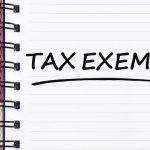Copyright law intersects with church governance in a number of important ways. Sermons and other forms of oral or written ministry are subject to copyright. As is the music performed by a church band. Leadership can help their church manage risk by understanding where copyright issues may come up.
Who owns the copyright to a sermon?
In copyright law, when a person creates a copyrightable work as part of their job the employer becomes the owner of the work’s copyright by default. The work is said to be a work for hire. This rule applies to sermons written by a church’s minister. Even if the minister writes sermons at home, chances are good that copyright in the sermon is the exclusive property of the church. The church can publish the sermons (in a book or online) without the minister’s consent. Conversely, the minister cannot sell or reproduce the sermons for his or her personal benefit.
Work-for-hire is the default rule, but a minister and the church can agree that the minister retains copyright of sermons. Ministers who are aware of this rule may ask their church to carve out copyright of sermons in the minister’s employment contract. Given the potential value of sermons, churches should be careful about agreeing to such a clause.
Churches should consult with an attorney before taking steps to monetize a collection of sermons. Profits from such sales may be subject to tax. Entering into a license with another church, whereby the church receives royalties for use of sermons, may create problems for the church’s tax-exempt status.
Does a church band have to pay royalties?
Outside of a church context, bands that perform music written by others must have a license to do so or else they are violating copyright laws. In the United States such licenses are issued by “performance rights organizations,” which facilitate the licensing process between artists and cover bands.
U.S. copyright law provides an exemption from licensing requirements for most kinds of musical performances (including recorded music) in connection with religious services. Under 17 U.S.C. § 110(3), a church does not need a license for the performance of (a) a nondramatic literary or musical work, or (b) a dramatico-musical work of a religious nature, in the course of services at a place of worship or other religious assembly. This exemption has several important wrinkles:
- For religious services themselves, the only type of music that might need a license would come from secular musicals or operas. If the church band wants to perform music from Cats it might need a license to do so.
- Outside of the scope of religious services, a church may need a performance license to play any sort of music in public. Especially if the church employs its band, the band may be exposing the church to copyright liability if it performs in other venues.
- Churches cannot broadcast the music component of their services, whether on television, on the radio, or online, without paying for a license.
Fortunately, performance licenses are not expensive or hard to obtain. Churches can get performance licenses covering most of the music they’re likely to perform for about $300 per year.
The Church Law Center is here to answer your church’s legal questions
The Church Law Center of California helps churches and secular nonprofits resolve their management, governance, and organizational questions. We can help your church sort out its copyright questions. To learn how we can help your church call us today at (949) 892-1221 or reach out to us through our contact page.






